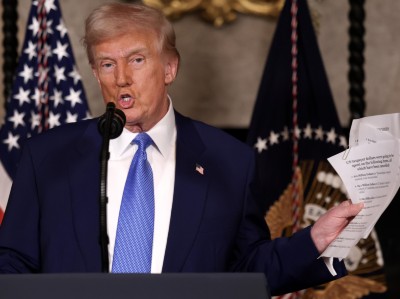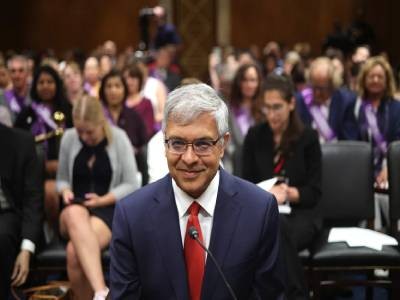You have full access to this article via your institution.
The US National Institutes of Health campus in Bethesda, Maryland.Credit: Grandbrothers/Alamy
We are appointed members of the US National Institutes of Health (NIH) Council of Councils, an advisory committee authorized by the US Congress to advise the director of the NIH and the director of the NIH’s Division of Program Coordination, Planning and Strategic Initiatives. As members of this body, we are compelled to voice our serious concerns about NIH grant terminations, planned 40% budget cuts for the NIH in the 2026 financial year and the proposed structural reorganization of the NIH (Nature 640, 863–865; 2025).
This letter reflects our personal views, which are separate and distinct from our official duties as special government employees, and those of the organizations we represent.
In our opinion, these developments threaten the health and well-being of the people of the United States. For decades, NIH funding has supported lifesaving medical advances that have improved the quality of care, extended lives and reduced suffering for millions of Americans. We strongly oppose the administration’s proposed actions that, if passed by Congress, will lead to drastic and irrevocable disruptions to the research that has been fundamental to improving the health of the American people.

How Trump 2.0 is reshaping science
The NIH is the premier medical-research funding agency in the world, directly contributing to life-extending and lifesaving therapies for US families. For example, NIH funding contributed to 354 out of 356 drugs approved by the US Food and Drug Administration during 2010–19, all of which continue to save lives today (E. G. Cleary et al. JAMA Health Forum. 4, e230511; 2023). Undermining this support will slow scientific progress and delay the discovery of treatments and cures on which families across the country rely.
NIH-funded research is also a proven engine of economic growth. According to a 2025 report by United for Medical Research — a coalition of research institutions, patient and health advocates and private industry seeking increased funding for the NIH — every dollar of NIH research funding returns roughly US$2.56 in economic activity.
The potential harms
NIH funding cuts proposed by the White House are projected to lead to more than $46 billion in lost economic activity in 2026. Proposed cuts to the indirect rates of NIH grants — the funding supporting the research infrastructure in scientific institutions — will lead to thousands of lay-offs and a slowing of research across the country and around the world.
Such concerns were evident at the Senate Appropriations Committee hearing on 10 June. Senators across the political spectrum advocated for the need to maintain ongoing NIH funding at its current level or higher, to continue broad support for biomedical research around myriad health challenges affecting Americans, including Alzheimer’s disease, cancer and diabetes.
We are also troubled by politically motivated grant terminations that could disrupt essential research and weaken trust in the integrity of the review process for grant applications. Science is adjudicated rigorously at the NIH and an awarded grant has gone through multiple levels of peer and NIH review. On 16 June, a federal judge ruled that hundreds of NIH grant terminations were ideologically motivated and thus illegal, so the grants would be reinstated (see Nature 642, 845–846; 2025).
The unclear rationale and potential consequences of proposed structural reorganizations in the NIH, including plans to consolidate or eliminate institutes, without stakeholder input, are also of concern.

NIH chief stands by funding cuts to ‘politicized science’ at tense hearing
Enacting these policies will diminish the NIH’s reputation in medical-research and global-health initiatives (see Nature 642, 279–280 (2025) and Nature 638, 299–300; 2025), and will put the United States last when it comes to international negotiations, trade and power, when it should be first. Defunding US foreign research will leave the country more vulnerable to national-security threats and isolation. Republican senator for Maine Susan Collins expressed concerns about China passing the United States in global-health research at the 10 June hearing.
As members of the NIH Council of Councils, we stand ready to fulfil our role of helping the agency to navigate current challenges, while safeguarding its core scientific mission: ensuring that the American people continue to benefit from the world’s most advanced medical research.
We urge the executive branch to abandon its goal of slashing the NIH budget and collapsing research institutes at the NIH. We appeal to the legislative branch to reject any attempt to politically interfere in the proven, lifesaving mission of the NIH. We call on NIH leadership to reinstate grants terminated on politically ideological grounds, to remove the Department of Government Efficiency’s decision-making power in NIH-funded science and to recall essential NIH staff to their posts.
The NIH is not just a national treasure — it is a global beacon of biomedical excellence. Its integrity, productivity and impact are unrivalled. We must not weaken it. We call on the White House, Congress and NIH leadership to protect the NIH and the future of US science.
Competing Interests
The authors declare no competing interests.



